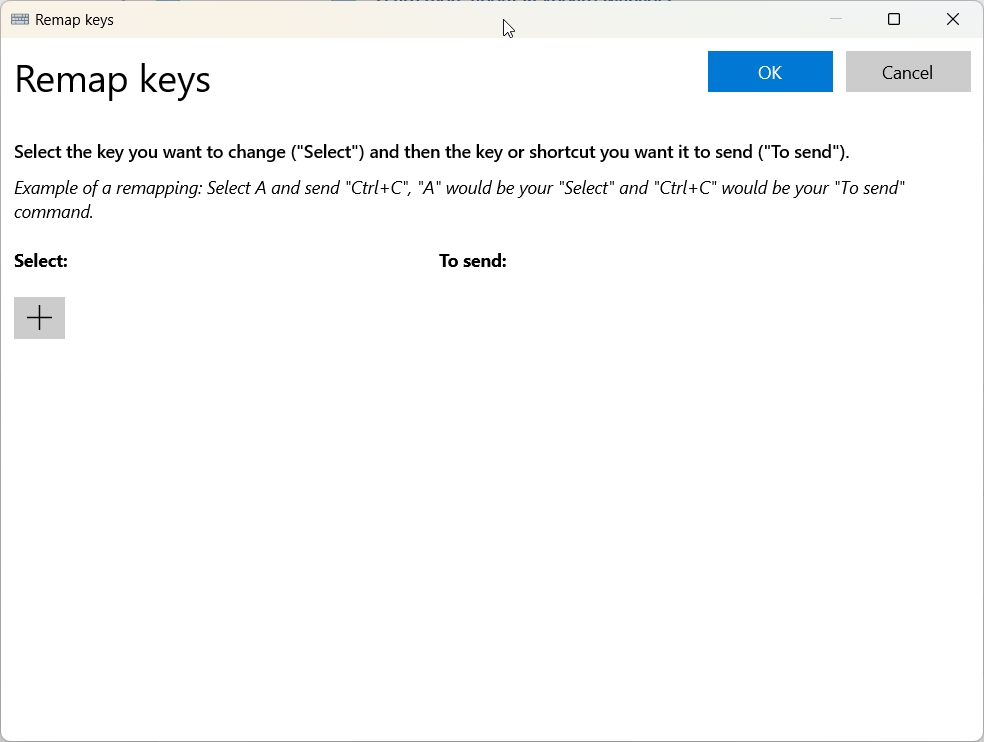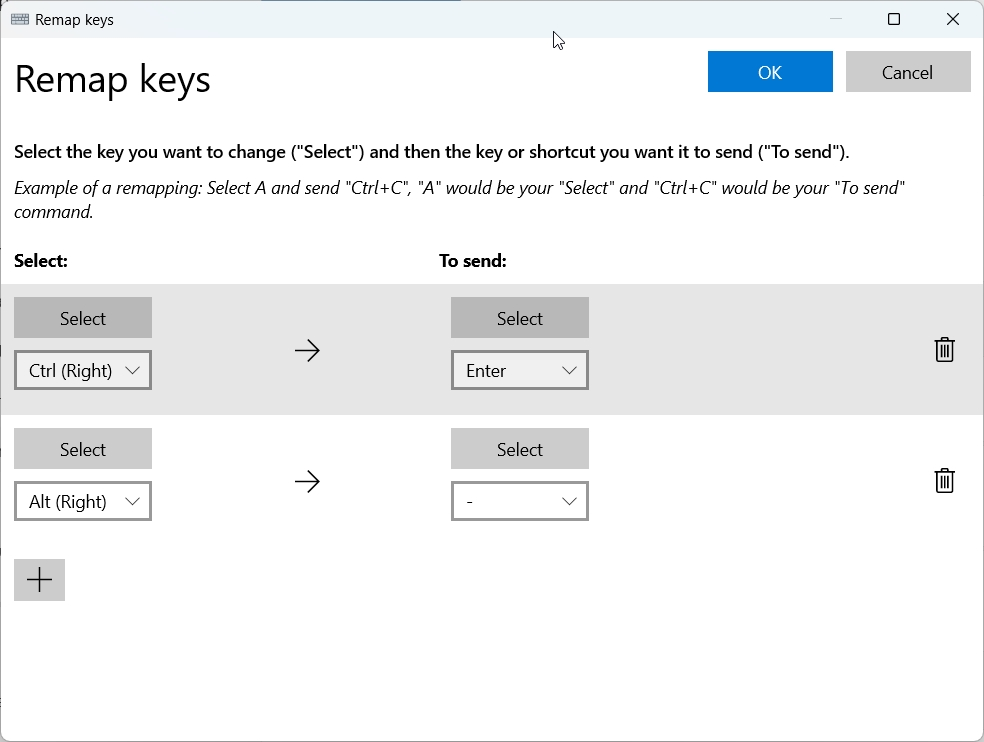 System Tutorial
System Tutorial
 Windows Series
Windows Series
 What Is the Command Key on Windows? A Guide to Mac Keys on Windows 10 and 11
What Is the Command Key on Windows? A Guide to Mac Keys on Windows 10 and 11
What Is the Command Key on Windows? A Guide to Mac Keys on Windows 10 and 11
Whether you've plugged a Mac keyboard into a Windows computer or switched from macOS to Windows, know that some modifier keys function differently across operating systems. Below, we'll explain what the Command key does on Windows.
Windows vs Mac Keyboard: The Command Key
When you use a Mac keyboard with Windows and press the Command or CMD key, you are essentially pressing the Windows Key. The Windows key's primary function is to open the Start menu and perform several shortcuts that help you navigate Windows when pressed with other keys.
For instance, the following popular Windows key shortcuts will work when you press the Command key on Windows:
Shortcut
Action
Command + S
Open Windows Search
Command + E
Open File Explorer
Command + R
Open Windows Run dialog box
Command + I
Open the Settings app
Command + D
Show the desktop
On the other hand, if you're a Mac user who switched to Windows, it helps to think about what the Command key does on a Mac. Since it's a modifier key used for shortcuts like copying, cutting, pasting, selecting, undoing, and saving, the closest Windows equivalent is the Ctrl key.
Although not all shortcuts are similar, the most widely used ones for text editing, navigation, and window management will work the same. Here's a quick comparison:
Mac
Windows
Action
Command + C
Ctrl + C
Copy
Command + V
Ctrl + V
Paste
Command + X
Ctrl + X
Cut
Command + A
Ctrl + A
Select All
Command + S
Ctrl + S
Save
Command + Z
Ctrl + Z
Undo
Command + F
Ctrl + F
Find
Command + T
Ctrl + T
New Tab
Command + N
Ctrl + N
New Window
Command + W
Ctrl + W
Close Window
Although the Mac keyboard also has a Control key, it often serves as a way to right-click things. But it is the same as pressing the Ctrl key if you're using a Mac keyboard on a Windows computer.
How to Reassign Keys on Windows
Reassigning keys can help if, for example, you want to swap the left Command and Option keys on a Mac keyboard to resemble the placement of the Windows and Alt keys on a Windows keyboard.
Keep in mind that the Alt key is equivalent to the Option key on Mac.
To do that, you will need to install Microsoft PowerToys on your Windows PC. Next, open PowerToys and select Keyboard Manager from the left sidebar. Then, toggle on Keyboard Manager on the right and click Remap a Key.

In the Remap Keys window, click the plus (+) button below the Select heading.

On the next screen, click Select on the left side. When you get a pop-up, press the key you want to remap and click OK.
Afterward, click the Select button below the To Send heading on the right. Once the pop-up appears, press the key you want to change and click OK. Back in the Remap Keys window, click the OK button in the top right to accept the changes.
If you want to return the keys to normal, open the Remap Keys window again, click the Trash icon next to the remapped keys you want to delete, and then click OK.

Luckily, every other key outside the Command, Option, and Control keys functions like their Windows keyboard counterparts. If things get confusing, you can always reassign the keys to suit your preferences and master the Mac keys on Windows.
The above is the detailed content of What Is the Command Key on Windows? A Guide to Mac Keys on Windows 10 and 11. For more information, please follow other related articles on the PHP Chinese website!

Hot AI Tools

Undresser.AI Undress
AI-powered app for creating realistic nude photos

AI Clothes Remover
Online AI tool for removing clothes from photos.

Undress AI Tool
Undress images for free

Clothoff.io
AI clothes remover

Video Face Swap
Swap faces in any video effortlessly with our completely free AI face swap tool!

Hot Article

Hot Tools

Notepad++7.3.1
Easy-to-use and free code editor

SublimeText3 Chinese version
Chinese version, very easy to use

Zend Studio 13.0.1
Powerful PHP integrated development environment

Dreamweaver CS6
Visual web development tools

SublimeText3 Mac version
God-level code editing software (SublimeText3)

Hot Topics
 1662
1662
 14
14
 1419
1419
 52
52
 1313
1313
 25
25
 1262
1262
 29
29
 1236
1236
 24
24
 Windows kb5054979 update information Update content list
Apr 15, 2025 pm 05:36 PM
Windows kb5054979 update information Update content list
Apr 15, 2025 pm 05:36 PM
KB5054979 is a cumulative security update released on March 27, 2025, for Windows 11 version 24H2. It targets .NET Framework versions 3.5 and 4.8.1, enhancing security and overall stability. Notably, the update addresses an issue with file and directory operations on UNC shares using System.IO APIs. Two installation methods are provided: one through Windows Settings by checking for updates under Windows Update, and the other via a manual download from the Microsoft Update Catalog.
 Nanoleaf Wants to Change How You Charge Your Tech
Apr 17, 2025 am 01:03 AM
Nanoleaf Wants to Change How You Charge Your Tech
Apr 17, 2025 am 01:03 AM
Nanoleaf's Pegboard Desk Dock: A Stylish and Functional Desk Organizer Tired of the same old charging setup? Nanoleaf's new Pegboard Desk Dock offers a stylish and functional alternative. This multifunctional desk accessory boasts 32 full-color RGB
 Got an AMD CPU and Aren't Using PBO? You're Missing Out
Apr 12, 2025 pm 09:02 PM
Got an AMD CPU and Aren't Using PBO? You're Missing Out
Apr 12, 2025 pm 09:02 PM
Unlocking Ryzen's Potential: A Simple Guide to Precision Boost Overdrive (PBO) Overclocking your new PC can seem daunting. While performance gains might feel elusive, leaving potential untapped is even less appealing. Fortunately, AMD Ryzen processo
 5 Hidden Windows Features You Should Be Using
Apr 16, 2025 am 12:57 AM
5 Hidden Windows Features You Should Be Using
Apr 16, 2025 am 12:57 AM
Unlock Hidden Windows Features for a Smoother Experience! Discover surprisingly useful Windows functionalities that can significantly enhance your computing experience. Even seasoned Windows users might find some new tricks here. Dynamic Lock: Auto
 Alienware 27 4K QD-OLED (AW2725Q) Review: A New Standard for Pixel Density
Apr 08, 2025 am 06:04 AM
Alienware 27 4K QD-OLED (AW2725Q) Review: A New Standard for Pixel Density
Apr 08, 2025 am 06:04 AM
The Alienware 27 4K QD-OLED (AW2725Q): A Stunning, High-Density Display The $899.99 price tag for a 27-inch monitor might seem steep, but the Alienware AW2725Q's exceptional pixel density delivers a transformative experience for both gaming and every
 ASUS' ROG Zephyrus G14 OLED Gaming Laptop Is $300 Off
Apr 16, 2025 am 03:01 AM
ASUS' ROG Zephyrus G14 OLED Gaming Laptop Is $300 Off
Apr 16, 2025 am 03:01 AM
ASUS ROG Zephyrus G14 Esports Laptop Special Offer! Buy ASUS ROG Zephyrus G14 Esports Laptop now and enjoy a $300 offer! Original price is $1999, current price is only $1699! Enjoy immersive gaming experience anytime, anywhere, or use it as a reliable portable workstation. Best Buy currently offers offers on this 2024 14-inch ASUS ROG Zephyrus G14 e-sports laptop. Its powerful configuration and performance are impressive. This ASUS ROG Zephyrus G14 e-sports laptop costs 16 on Best Buy
 How to Use Windows 11 as a Bluetooth Audio Receiver
Apr 15, 2025 am 03:01 AM
How to Use Windows 11 as a Bluetooth Audio Receiver
Apr 15, 2025 am 03:01 AM
Turn your Windows 11 PC into a Bluetooth speaker and enjoy your favorite music from your phone! This guide shows you how to easily connect your iPhone or Android device to your computer for audio playback. Step 1: Pair Your Bluetooth Device First, pa
 You Can Get The Razer Basilisk V3 Pro Mouse for 39% off
Apr 09, 2025 am 03:01 AM
You Can Get The Razer Basilisk V3 Pro Mouse for 39% off
Apr 09, 2025 am 03:01 AM
##### Razer Basilisk V3 Pro: High-performance wireless gaming mouse The Razer Basilisk V3 Pro is a high-performance wireless gaming mouse with high customization (11 programmable buttons, Chroma RGB) and versatile connectivity. It has excellent sensors, durable switches and extra long battery life. If you are a gamer looking for a high-quality wireless mouse and need excellent customization options, now is a great time to buy the Razer Basilisk V3 Pro. The promotion cuts prices by 39% and has limited promotion periods. This mouse is larger, 5.11 inches long and 2 inches wide



